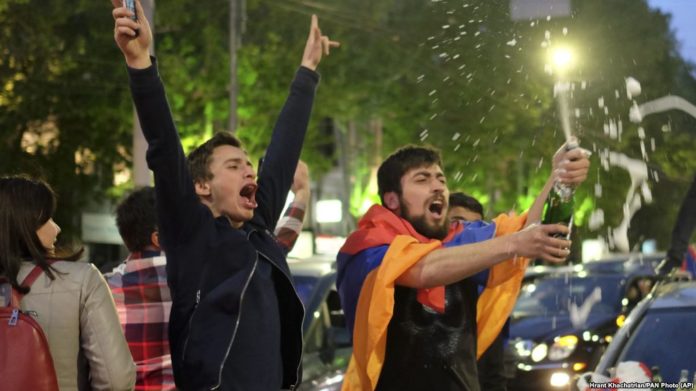YEREVAN (RFE/RL and Public Radio of Armenia) — US Ambassador Richard Mills on Tuesday, April 24, praised the Armenian police and anti-government protesters led by Nikol Pashinyan for avoiding bloodshed during their 11-day standoff that led to the resignation of Prime Minister Serzh Sargsyan on Monday, April 23.
“This is a day to commend,” Mills told RFE/RL’s Armenian service (Azatutyun.am). “The protesters, the demonstrators, the Armenian people came out in a peaceful and orderly way under the leadership of Mr. Pashinyan.”
He noted the “professionalism” of Armenian security forces shown during the sustained protests against Sargsyan, while urging the authorities to investigate instances of violence against some protesters and journalists.
“This is a great moment for the Armenian people and the spirit of democracy in this country,” stressed the envoy.
Mills also commended Sargsyan, saying that the former president acted like a “real leader” and listened to “the voice of the Armenian people” when he stepped down on Monday.











